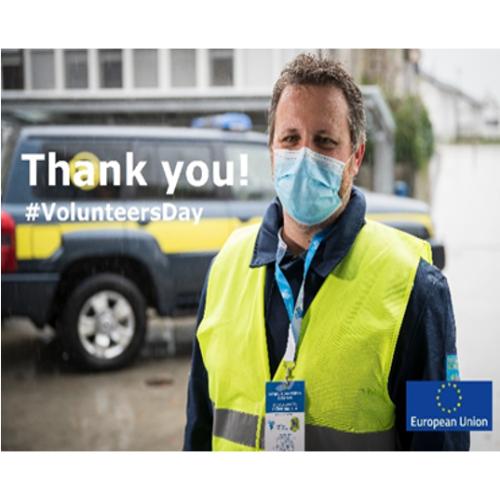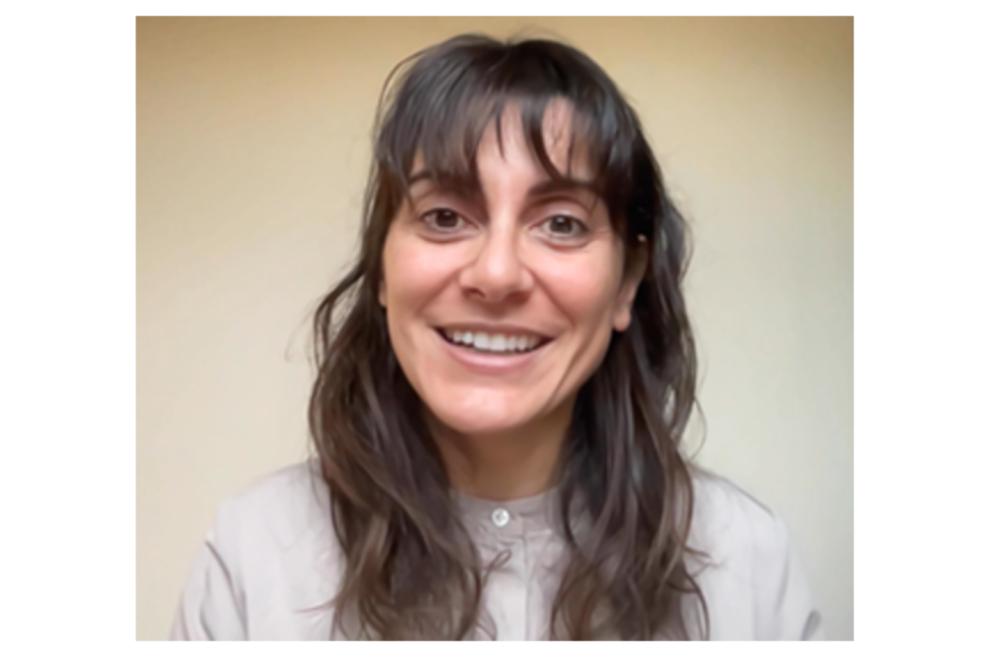
International Volunteers’ Day
5 December is International Volunteers’ Day. Three volunteers who were part of our 'Next Generation UCPM' study group share their insights on volunteering in civil protection and what volunteering means to them.

I’ve been studying Rescue Engineering since autumn 2020 at the University of Applied Sciences in Cologne, Germany (TH Köln), with a specialisation in Fire Safety Engineering.For my university internship, I am working as a trainee in the Directorate of Operational Strategy at CGDIS.
I’m 22 now, but I joined the local Youth Fire Brigade of my home city when I was 8. At the age of 16, I started as a volunteer firefighter and paramedic at the CGDIS.
The best part of volunteering in civil protection is the positive impact of our work. After countless hours of specialised trainings and exercises, we can provide professional assistance to people in need. Not only is this a great achievement after the long traineeship, but it is also a reminder that we have an honourable task with great impact for the community, which is often rewarded by memorable moments of individual and collective gratitude.

Volunteering has been the foundation of my anticipated professional career in civil protection. After I started as a volunteer firefighter and paramedic, I was rapidly convinced to change my volunteering activities into my profession. After I did some research, I decided to study Rescue Engineering in Cologne to get further involved in civil protection. My volunteering experience made it possible to get a very interesting and challenging university internship at the CGDIS and to participate in the Union Civil Protection Knowledge Network (UCPKN).
During the Knowledge Network’s Youth in Civil Protection and Disaster Risk Management study visit in Brussels, I had the opportunity to connect with other colleagues to learn more about the Union Civil Protection Mechanism, to share experiences in civil protection and to grow my network of experts. The UCPKN gives me the opportunity to gather information for my upcoming bachelor thesis.
Volunteers in civil protection are the backbone of disaster preparedness. Promoting volunteering in civil protection is key to motivate young people to become the ‘Next Generation UCPM’. Volunteers can share valuable knowledge they have acquired at work or during their studies. Furthermore, volunteers can be motivated to apply as experienced professionals in civil protection organisations.
I am from Italy, and I am enrolled in Italian civil protection. Specifically, I am a member of the Italian Federation of Aquatic Rescue (FISA).
I started my career in the water rescue field. Before becoming a civil protection volunteer, I became involved in water rescue as a teenager. The reason for this was that I was born on the coast. I have always lived by the sea. I always had a special affection for the water, and started swimming when I was two or three years old. So, during my teenage years, I wanted to give a purpose to many years of swimming. I wanted my swimming and my relationship with water not just to be something for myself, but to be something that is useful for society. I attended a water rescue course, and I got my lifeguard license. I also started scuba diving, and these two training phases of my life were key for my current job, both in terms of my professional career and my volunteering career.
My area of expertise is in water rescue, but I am actually involved in many other kinds of services, like logistics and administration. I am also a trainer in the Italian civil protection for the Marche region. I train new volunteers to enter the Italian civil protection system. This means that I provide introductory courses to be aware of risk, the importance of self-protection, wearing PPE, and being aware that every action we make can influence our safety, but also the safety of our volunteer colleagues, and the safety of citizens.
I am also involved in the environmental side, as my professional career is being a marine biologist, and I am also an academic researcher. As a marine biologist, I have studied marine pollution and other aspects of effects on marine life, so I try to bring my expertise from my professional career to my volunteer career. That’s why, a few years ago in FISA, I started a campaign called Sea Rescuers Against Plastic, which is an environmental campaign encouraging lifeguards and civil protection volunteers to take part in beach clean-ups.
Volunteering has been the foundation of my professional career in civil protection. After I started as a volunteer firefighter and paramedic, I was rapidly convinced to change my volunteering to my profession. My civil protection services have been in many areas, including max emergencies, water rescue, education and training, and even water rescue prevention. I train other volunteers, and I am also involved in environmental volunteering, so I have a lot of different areas of expertise. Honestly, after all these years and working in so many different emergency and non-emergency contexts, it has really helped me to understand where civil protection actually act. I know that civil protection has some boundaries, but these boundaries are sometimes quite flexible. Working in different kind of areas, I have been able to understand where I as a volunteer, and other Italian volunteers, can provide our help and support.

What also helped me was not only the different areas I have gained experience in, but also the diversity of the contexts. In the same emergencies and scenarios, there are different areas and factors that volunteers can be involved in. It made me realise that a volunteer is just a citizen who can provide their expertise or support, regardless of their level of experience. For example, in the past, I helped in the kitchen. I am not a chef, but I could help to cut potatoes, clean fish, and things like that. Some of the habits or actions that we do at home can actually be translated into civil, protection. And sometimes, also our professional job and professional skills can be important in civil protection, which I think is amazing, as it is like having a professional service, but by a volunteer. For example, when I do my environmental services, I am a marine biologist, so knowing that my expertise can be applied in civil protection is amazing.
All the services I have provided and my volunteering experience have helped to shape my awareness of what civil protection is, but also my awareness of what I can do as a volunteer. Sometimes, I need to push my boundaries. For example, I may have had a skill that I thought would not be useful, but it actually was, so I needed to push my own boundaries and show myself that I can do it, and that my expertise can really help people.
I work as a volunteer firefighter in my hometown, and also for the volunteer fire brigade at the University of Technology Graz. The purpose of the fire brigade at the university is totally different to normal fire brigades. Our goal is to be a connection between firefighters and the university, to work on their ideas and bring the newest research to their level. Another task is to bring the experts of the university to the field if they are needed. In recent years, we have thought a lot about how we could realise this plan. When doing the research, we often found ourselves in the area of the European civil protection mechanism (for example Technical Assistance and Support Teams, or Hazardous and Noxious Substances.
The hardest thing about my role is that because of complex systems and all the different players involved, it takes a long time to bring some needed innovation into the system.

The best part is the people. We had some projects with organisations from other regions, and had no idea who we would be working with, but all of the people have the same mindset, so after a few hours of working together it already felt like working with friends.
Because of my research for our organisation, I learned a lot about the UCPM, and I also got the chance to attend a workshop for youth in civil protection in Brussels. I made some good connections with the UCPM during the workshop.
Volunteers are very involved in all aspects of the community. Through volunteers and their stories, the awareness for the importance of civil protection can be raised across the whole population.
If you want to get involved in civil protection, start at the bottom (for example, a local firefighting brigade), but if you want to go big, just try and ask everybody you can for chances to attend workshops and courses at national and international levels. It’s definitely worth it!

The Knowledge Network editorial team is here to share the news and stories of the Knowledge Network community. We'd love to hear your news, events and personal stories about your life in civil protection and disaster risk management. If you've got a story to share, please contact us.
Thematic series